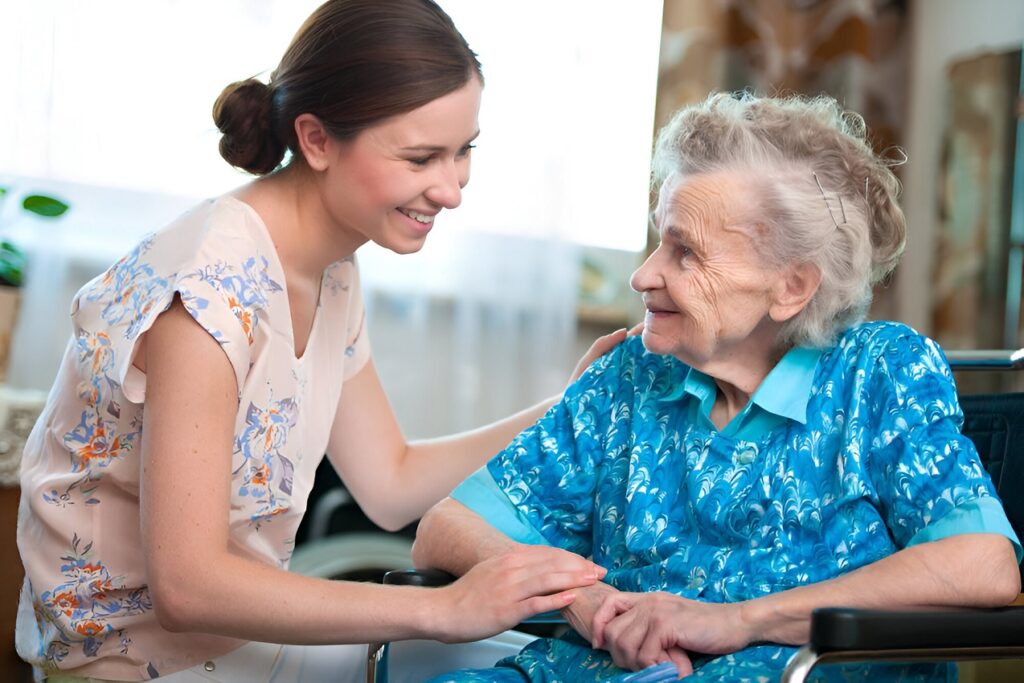As our loved ones age, ensuring they receive the right level of care becomes essential. While some seniors manage independently, others may require additional support to maintain their quality of life. Recognizing the early indicators that home care is necessary can prevent health complications and enhance their overall well-being. If you notice any of the following signs, it may be time to consider Indianapolis home care to provide the assistance and comfort they need.
Key Takeaways:
- Home care is essential when seniors struggle with daily activities or personal hygiene.
- Forgetfulness, weight loss, and mobility issues indicate the need for professional assistance.
- Emotional withdrawal and isolation are signs of declining mental health.
- Unmanaged medications and cognitive decline can lead to serious health risks.
- Family caregiver burnout signals the need for additional support from professionals.
1. Difficulty with Daily Activities
Aging often brings mobility challenges, reduced strength, and decreased energy levels. If your loved one struggles with routine tasks such as cooking, cleaning, or bathing, home care services can offer the necessary support to ensure their safety and well-being.
2. Poor Personal Hygiene
A noticeable decline in grooming habits—such as infrequent bathing, unkempt hair, or wearing the same clothes for days—can indicate difficulty managing self-care. A home caregiver can help with personal hygiene, ensuring your loved one maintains their dignity and health.
3. Forgetfulness and Missed Appointments
Memory lapses can be normal with age, but forgetting medication doses, missing doctor’s appointments, or neglecting important tasks may signal cognitive decline. A home caregiver can provide medication reminders and ensure appointments are kept to maintain optimal health.
4. Unexplained Weight Loss or Poor Nutrition
If your loved one has lost weight unexpectedly, it may be due to difficulty preparing meals, loss of appetite, or underlying medical conditions. Home caregivers can assist with grocery shopping, meal preparation, and ensuring they receive proper nutrition to maintain their strength and health.
5. Increased Risk of Falls
Frequent falls, bruises, or difficulty walking can be dangerous for seniors. If your loved one has experienced a recent fall or struggles with balance, a home care professional can provide mobility assistance, fall prevention strategies, and necessary home modifications.
6. Isolation and Withdrawal from Social Activities
Seniors who become withdrawn, avoid social interactions, or stop engaging in activities they once enjoyed may be struggling emotionally or physically. Home care services provide companionship, encourage social engagement, and help prevent feelings of loneliness and depression.
7. Difficulty Managing Medications
Managing multiple prescriptions can be overwhelming, leading to missed doses or incorrect medication intake. A home caregiver ensures medications are taken as prescribed, reducing the risk of complications and hospitalizations.
8. Increased Confusion or Cognitive Decline
If your loved one shows signs of memory loss, disorientation, or difficulty following conversations, it could be early dementia or Alzheimer’s disease. Home care providers specialize in cognitive support, offering structured routines and safety monitoring to prevent harm.
9. Unkempt Living Conditions
A once tidy home becoming cluttered or unsanitary may indicate that your loved one is struggling with housekeeping. Professional caregivers can assist with cleaning, laundry, and maintaining a safe and comfortable environment.
10. Family Caregiver Burnout
If you or other family members are feeling overwhelmed caring for your loved one, it may be time to seek professional help. Home care services allow family members to take a break while ensuring their loved one receives quality care from trained professionals.
The Emotional Benefits of Home Care
Beyond physical assistance, home care provides emotional and psychological support for seniors. Aging can be isolating, and having a compassionate caregiver offers companionship, social interaction, and a sense of security. Regular conversations and engagement in activities help boost morale and prevent depression, allowing seniors to enjoy a higher quality of life in familiar surroundings.
Cost-Effectiveness of Home Care vs. Assisted Living
Many families worry about the cost of senior care, but home care can be a more affordable option compared to assisted living facilities. With home care, seniors receive personalized assistance tailored to their specific needs, eliminating the need for full-time residential care. This allows families to pay only for the required services while keeping their loved ones in a comfortable and familiar environment.
How Home Care Supports Independence
One of the biggest advantages of home care is that it enables seniors to maintain their independence while receiving the support they need. Unlike assisted living or nursing homes, where routines may be rigid, home care allows seniors to set their own schedules, continue hobbies, and live according to their personal preferences, fostering a sense of dignity and autonomy.
When to Transition from Part-Time to Full-Time Home Care
As a senior’s needs evolve, part-time home care may no longer be sufficient. Signs that indicate the need for full-time care include worsening health conditions, increased confusion, frequent falls, or an inability to perform essential self-care tasks. Families should regularly assess their loved one’s condition and consult with healthcare professionals to ensure they receive the appropriate level of care.
Choosing the Right Indianapolis Home Care Provider
Selecting the best home care service for your loved one requires careful consideration. Look for agencies with experienced caregivers, flexible care plans, and positive reviews. Personalized care ensures your loved one’s needs are met while allowing them to remain independent in their own home.
How do I know if my loved one needs home care?
If your loved one struggles with daily tasks, personal hygiene, medication management, or experiences cognitive decline, they may need home care. Signs like isolation, weight loss, and falls also indicate the need for professional assistance to maintain their well-being.
What services do Indianapolis home care providers offer?
Home care providers assist with personal hygiene, meal preparation, medication reminders, housekeeping, and companionship. Some agencies also offer specialized dementia care, mobility assistance, and transportation services to enhance the quality of life for seniors.
How do I know if my loved one needs home care?
When selecting a home care provider, consider experience, caregiver qualifications, client reviews, and service flexibility. A reputable agency should offer personalized care plans and conduct background checks on caregivers to ensure quality and safety for your loved one.



